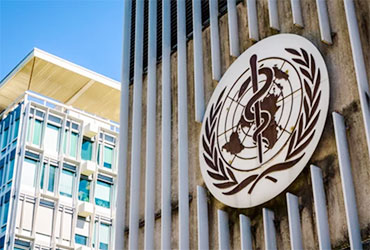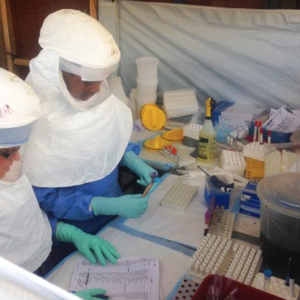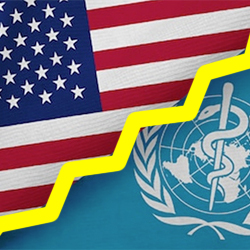By IDSE News Staff
During the COVID-19 pandemic, then-president Donald Trump announced the United States would stop working with the World Health Organization (WHO). Many infectious disease specialists, including the Infectious Diseases Society of America, did not agree with the decision.
The two met recently for a strategic dialogue to provide a platform to maximize the longstanding U.S. government-WHO partnership, and to protect and promote the health of all people around the world, including the American people.

Representatives from across the U.S. government and WHO leadership discussed several global public health issues that are priorities, as well as areas of collaboration and partnership, including ongoing WHO strengthening efforts. The United States and WHO welcomed the creation of the historic new financial intermediary fund for pandemic prevention, preparedness and response, and called on countries to help ensure it is sustainably financed and supported, according to a joint statement.
“As the world looks to emerge stronger from the COVID-19 pandemic, it is clear that we must be better prepared going forward—something highlighted by recent outbreaks of monkeypox, Ebola and polio,” Xavier Becerra, the secretary of the Department of Health and Human Services, in Washington, D.C., and Tedros Adhanom Ghebreyesus, PhD, the director-general of WHO, in Geneva, said in a joint statement.
“The global health architecture comprises important entities, policies and legal tools that assist countries to improve national, regional and global health. An essential aspect of this architecture is the ability to prevent, detect and respond to pandemics and other health security threats. Secretary Becerra and Director-General Tedros agreed that national and global capacities must be strong, agile, ever improving and always fit-for-purpose. They discussed efforts underway to improve the global health architecture, to support resilient health systems, and to advance health equity.”
The discussion also addressed efforts to develop a new pandemic instrument, strengthening the International Health Regulations (IHR) and scaling-up of Universal Health Preparedness Review, including global, regional and national epidemic and One Health surveillance capabilities.
Both said it was vital to advance health security and primary health care, including by leveraging the extensive global health data infrastructure with the support of U.S. programs.
“In promoting rapid and transparent data sharing and coordination, strengthened IHRs and a new pandemic instrument can provide important tools to WHO member states, including the United States, to prevent, detect and rapidly respond to new events with pandemic potential and monitor disease control measures,” they said. “This reinforcing of global health security is essential to protect the health of the world and the American people.”
In addition to strengthening health emergency preparedness and response, the United States and WHO recommitted to strengthening their partnership in key areas for the world to reach the Sustainable Development Goals by 2030. Some of the problems addressed will be HIV, tuberculosis, polio and malaria, advancing sexual and reproductive health and rights, and empowering marginalized and vulnerable communities in global health.




